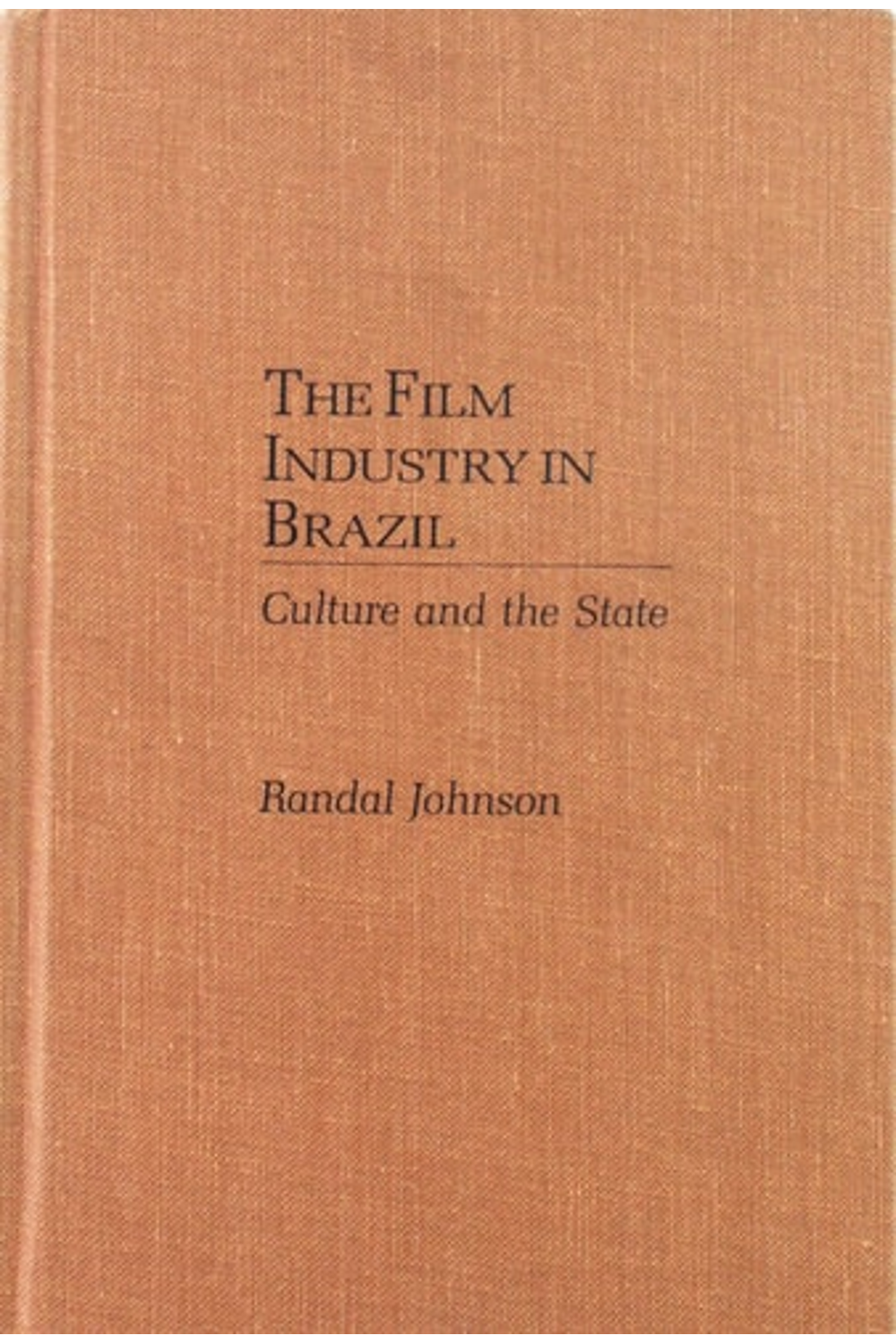Delve into the fascinating world of Brazilian cinema with Randal Johnson’s “The Film Industry in Brazil: Culture and the State.” This sought-after First Edition, part of the Pitt Latin American Series, explores the dynamic interplay between Brazilian filmmakers, distributors, government policies, and the shaping of national identity. Explore how Brazil’s unique political climate and cultural landscape influenced the nation’s film industry, from the struggles of censorship to the rise of Cinema Novo. A must-have for film scholars, Latin American studies enthusiasts, and anyone intrigued by the captivating story of Brazilian film. Discover the forces that shaped a vibrant and vital part of Latin American culture.
The Film Industry in Brazil: Culture and the State (Pitt Latin American Series)
19,83 $
In stock
Description
Opens an important door in analyzing the interplay of filmmakers, distributors, exhibitors, and the state in the development of the cinema as both an industry and an expression of national culture.”–Hemisphere
Dive deep into the vibrant and complex world of Brazilian cinema with Randal Johnson's seminal work, "The Film Industry in Brazil: Culture and the State (Pitt Latin American Series)." This First Edition Hardcover, published by the University of Pittsburgh Press in 1987, offers a compelling and insightful analysis of the intricate relationship between filmmakers, distributors, exhibitors, and the Brazilian state, unveiling how this interplay shaped the development of cinema in Brazil. More than just a study of economics, "The Film Industry in Brazil" explores the fascinating intersection of culture, politics, and commerce. Johnson meticulously examines how Brazil's unique social and political landscape influenced the themes, styles, and production methods within its film industry. Uncover the struggles and triumphs of Brazilian filmmakers as they navigated censorship, funding limitations, and the ever-present influence of Hollywood, all while striving to express a distinct national identity. This meticulously researched book, part of the esteemed Pitt Latin American Series, delves into the historical context of Brazilian cinema, tracing its evolution from its early beginnings to its emergence as a significant force in Latin American culture. Explore the impact of key government policies, such as the establishment of state film agencies and the implementation of protectionist measures, on the growth and direction of the industry. Discover how these policies, intended to foster local talent and promote Brazilian narratives, often had unintended consequences, creating both opportunities and challenges for filmmakers. Johnson's work goes beyond a mere chronicle of events; it provides a critical analysis of the cultural and social significance of Brazilian films. Examine how these films reflected and shaped the national consciousness, addressing issues of identity, social inequality, and political oppression. Learn about the rise of Cinema Novo, a groundbreaking movement that challenged conventional filmmaking norms and embraced social realism, giving voice to the marginalized and exposing the realities of life in Brazil. "The Film Industry in Brazil" is an essential resource for anyone interested in: * **Brazilian Cinema:** Gain a comprehensive understanding of the history, evolution, and key movements within Brazilian film. * **Latin American Studies:** Explore the cultural and political dynamics that shaped the development of cinema in Brazil within the broader context of Latin American history. * **Film Industry Economics:** Analyze the economic forces that influenced the production, distribution, and exhibition of films in Brazil. * **Politics and Culture:** Examine the complex relationship between the state and the film industry, and how government policies impacted the creative process. * **Communication and Media Studies:** Investigate the role of cinema as a powerful tool for communication, cultural expression, and social commentary. With 288 pages of in-depth analysis, "The Film Industry in Brazil" provides a valuable contribution to the understanding of Brazilian culture and the role of cinema in shaping national identity. Whether you're a film scholar, a student of Latin American studies, or simply a lover of world cinema, this book offers a compelling and insightful journey into the heart of Brazilian filmmaking. Don't miss this opportunity to own a piece of film history.
Additional information
| Authors | |
|---|---|
| Binding | |
| Condition | |
| ISBN-10 | 0822935384 |
| ISBN-13 | 9780822935384 |
| Language | |
| Pages | 288 |
| Publisher | |
| Year published | |
| Weight | 499 |
| Edition | First Edition |
SKU: M-9780822935384-0
Categories: Business & Money, Communication & Media Studies, History & Criticism, Humor & Entertainment, Industries, Industry, Movies, Politics & Social Sciences, Social Sciences, Sports & Entertainment
Related products
Ripleys Believe It Or Not 2019
16,80 $The Pocket Book of Boosh
15,14 $
- Additional information
- Currencies
- USD – United States dollar
- EUR – Euro
- GBP – Pound sterling
- CNY – Chinese yuan
- BRL – Brazilian real
- MXN – Mexican peso
- JPY – Japanese yen
- PHP – Philippine peso
- THB – Thai baht
- PLN – Polish złoty
- CAD – Canadian dollar
- MYR – Malaysian ringgit
- AUD – Australian dollar
- TWD – New Taiwan dollar
- CZK – Czech koruna
- SEK – Swedish krona
- HUF – Hungarian forint
- ILS – Israeli new shekel
- CHF – Swiss franc
- HKD – Hong Kong dollar
- DKK – Danish krone
- SGD – Singapore dollar
- NOK – Norwegian krone
- NZD – New Zealand dollar





